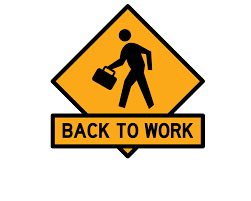 A recent news story in New York relates to New York Mets right-hander Noah Syndergaard and his lease for a New York City apartment. It appears that the pitcher, nicknamed “Thor”, signed a lease for a penthouse in the Tribeca area of downtown New York City for ten months, starting in March of this year. His rent was $22,500 a month and the $17,000 broker’s commission was to be paid by the tenant. The lease was signed in February, before the coronavirus pandemic shut New York City down a month later. In addition, the hurler then discovered in early March that he would need the dreaded “Tommy John” surgery to replace a ligament in his elbow, and would miss the entire baseball season, which, at that point, was scheduled to begin in late March.
A recent news story in New York relates to New York Mets right-hander Noah Syndergaard and his lease for a New York City apartment. It appears that the pitcher, nicknamed “Thor”, signed a lease for a penthouse in the Tribeca area of downtown New York City for ten months, starting in March of this year. His rent was $22,500 a month and the $17,000 broker’s commission was to be paid by the tenant. The lease was signed in February, before the coronavirus pandemic shut New York City down a month later. In addition, the hurler then discovered in early March that he would need the dreaded “Tommy John” surgery to replace a ligament in his elbow, and would miss the entire baseball season, which, at that point, was scheduled to begin in late March.
We therefore have a situation where the tenant’s circumstances changed a great deal after he signed the lease. The pandemic shut down much of New York City. Then, because of injury, he probably no longer needed an apartment in New York City, because he will most likely rehabilitate his injury at the Mets training facilities in Florida, and will not need to live in New York City during the upcoming season (which, due to the pandemic, has not even started, and may not happen at all). On top of it all, Major League Baseball has recently proposed a plan to re-start the season with players being forced to accept major cuts in salary, which would limit Snydergaard’s ability to pay the agreed-upon rent.
There are several legal issues raised in this situation. One issue concerns using the media to attempt to obtain publicity for one’s legal conflicts, as the parties have done in the Syndergaard case. Our firm disagrees with litigating through the media, as we believe it is best for the parties to attempt to work out disputes privately, through counsel, rather than by using media outlets to espouse their positions. If negotiations are unsuccessful, then the Court system remains the best avenue for resolving such disputes.
 As we are all aware, the effects of the COVID-19 virus on commercial leases will be quite substantial. Many businesses have been forced to limit their hours, or have been forbidden to open at all during this time. Of course, a business whose income has been limited in this manner will have problems meeting its rent obligations under its lease.
As we are all aware, the effects of the COVID-19 virus on commercial leases will be quite substantial. Many businesses have been forced to limit their hours, or have been forbidden to open at all during this time. Of course, a business whose income has been limited in this manner will have problems meeting its rent obligations under its lease. New York Real Estate Lawyers Blog
New York Real Estate Lawyers Blog












